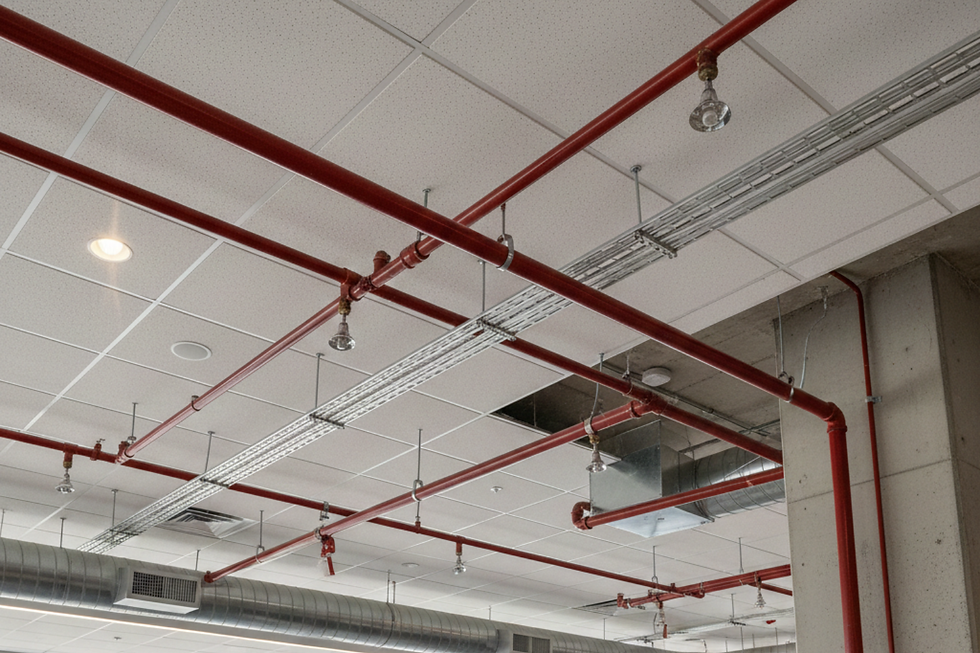Essential Equipment for Enhancing Fire Safety
- firejaime
- Jul 17, 2025
- 4 min read
Fire safety is a critical aspect of any home or workplace. By ensuring that you have the right fire safety equipment, you can significantly reduce risks and protect lives. In this blog post, we will explore the essential fire safety equipment you need, practical information on installation, and maintenance tips to keep everything in top shape.
Understanding Fire Safety Equipment
Fire safety equipment encompasses a range of devices designed to detect, control, and extinguish fires. These tools are vital for both residential and commercial environments.
Smoke Detectors: Smoke detectors are essential for early fire detection. They alert occupants when smoke is present, giving everyone precious time to evacuate. Modern models can even alert your phone if there's smoke detected at home.
Fire Extinguishers: Portable fire extinguishers are critical for dealing with small fires before they escalate. They come in various classes, suited for different types of fires—A (ordinary combustibles), B (flammable liquids), C (electrical fires), D (flammable metals), and K (cooking oils and fats).
Fire Blankets: Fire blankets can smother small fires or wrap around a person if their clothing catches fire. They are particularly useful in kitchens.
Sprinkler Systems: Automatic sprinkler systems can swiftly control or extinguish flames, preventing extensive damage to property. They are often installed in commercial buildings, but residential versions are also available.
Exit Signs and Emergency Lighting: These help guide individuals to safety in case of an emergency. Exit signs should be illuminated and visible from a distance.

The Importance of Fire Safety Equipment
Investing in fire safety equipment is not just a recommendation; it’s essential for safety. Statistics show that over 350,000 home structure fires occur annually in the United States, leading to thousands of injuries and fatalities. Having the right fire safety equipment can prevent such tragedies.
Legal Requirements: Depending on where you live, there may be building codes and regulations that mandate the presence of specific fire safety equipment in homes and commercial settings.
Peace of Mind: Knowing you have measures in place to mitigate fire risks provides peace of mind for you and your family or employees.
Reduced Insurance Costs: Insurance companies may provide discounts on premiums for properties equipped with fire safety systems.
Can I Install a Fire Extinguisher Myself?
Yes, you can install a fire extinguisher yourself. However, proper placement is key. Fire extinguishers should be easily accessible and mounted securely.
Placement: Ideally, you should place extinguishers near high-risk areas like kitchens or garages. They should be located on every level of your home or office building.
Mounting: Follow the manufacturer's instructions for mounting your fire extinguisher. Typically, they should be mounted on a wall, within easy reach, and at least 4 inches off the ground for ease of access.
Maintenance: Inspect your fire extinguisher monthly to ensure it is fully charged and hasn’t passed its expiry date.

Regular Maintenance of Fire Safety Equipment
Proper maintenance of fire safety equipment is crucial to ensuring they perform effectively when needed. Here are some key maintenance tips:
Inspect Smoke Detectors: Test your smoke detectors at least once a month. Replace batteries annually, and if the detector is more than 10 years old, consider replacing the entire unit.
Maintain Fire Extinguishers: Check that your fire extinguishers are in working order. Look for signs of corrosion, leaks, or a low-pressure gauge. Professional maintenance should be done annually.
Clean Fire Blankets: Fire blankets should be stored in an easily accessible location and checked regularly to ensure they are free from contamination or damage.
Check Sprinkler Systems: If you have a sprinkler system, ensure it is professionally serviced at least once a year. Test the water flow, inspect for leaks, and ensure all sprinkler heads are unobstructed.
Emergency Lighting: Ensure that emergency exit lighting is functioning correctly and tests should be conducted monthly to check battery backup needs.
Expert Advice on Fire Safety Equipment Installation
While some fire safety equipment installations can be DIY projects, others may require professional assistance.
Complex Systems: For complex systems like fire sprinkler installations or alarm systems, it’s best to hire professionals. A proper installation ensures compliance with local codes and can improve effectiveness.
Training: Ensure that all occupants know how to use fire extinguishers and understand the function of alarms and sprinkler systems. Regular fire drills are necessary to prepare everyone.
Expert Resources: You can find more information about professional services for fire safety equipment installation at Active Fire Sprinkler.

Final Thoughts on Fire Safety Equipment
Investing in the right fire safety equipment not only protects lives but also property. It sets a standard for safety that can create a safer environment for everyone.
Taking proactive measures includes understanding what equipment you need, ensuring proper installation, and committing to regular maintenance. Remember that fire safety is an ongoing process. Stay informed, stay prepared, and know that your actions today can make all the difference in protecting your loved ones and belongings from fire hazards.




Comments